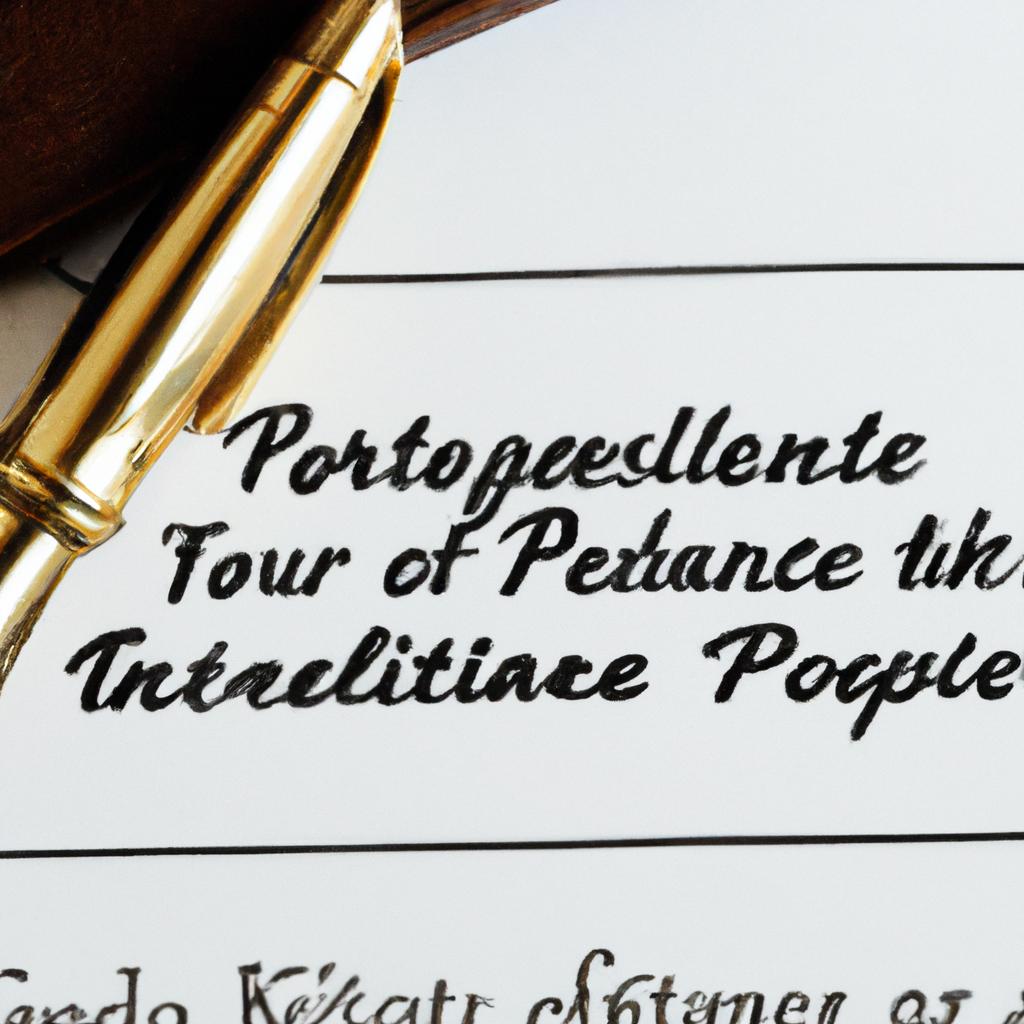Probate is a necessary process that every estate must undergo following the passing of a loved one. However, the duration of probate cases can often be a source of uncertainty and frustration for those involved. As experienced legal professionals at Morgan Legal Group in New York City, we understand the complexities of probate and strive to provide clarity and guidance to our clients throughout the process. In this article, we will explore the factors that can influence the length of probate cases and offer insights to help you navigate this challenging time with confidence.
Understanding the Factors that Influence the Duration of Probate Cases
Factors Affecting Probate Case Duration
Probate cases can vary significantly in duration based on a variety of factors. Understanding these factors can help individuals anticipate how long the process may take. Some key factors that can influence the duration of probate cases include:
- Complexity of the estate: Estates with numerous assets, debts, or beneficiaries may require more time to resolve.
- Disputes among beneficiaries: If beneficiaries contest the will or disagree on distribution of assets, the probate process can be prolonged.
- State laws: Each state has its own probate laws and procedures, which can impact how long the process takes.
Strategies for Expediting Probate
While probate cases can sometimes be lengthy, there are strategies that can help expedite the process. Some ways to potentially shorten the duration of a probate case include:
- Efficient estate planning: Properly executed and updated estate planning documents can streamline the probate process.
- Mediation or alternative dispute resolution: Resolving disputes outside of court can help avoid lengthy legal battles.
- Working with experienced legal professionals: Having knowledgeable probate attorneys and financial advisors on your side can help navigate the process more efficiently.

Key Considerations for Expediting the Probate Process
When it comes to probate cases, one of the most common questions we hear is “how long do probate cases take?” The answer to this question can vary based on various factors, but there are some key considerations that can help expedite the probate process. By addressing these factors proactively, you can minimize delays and ensure a more efficient probate process.
- Complete and Accurate Documentation: One of the most important factors in expediting the probate process is ensuring that all documentation is complete and accurate. This includes the will, death certificate, and any other relevant paperwork.
- Open Communication with Beneficiaries: Keeping beneficiaries informed and involved in the probate process can help prevent disputes and delays. Clear communication can help ensure that everyone is on the same page and minimize potential conflicts.

Utilizing Professional Legal Services to Navigate Complex Probate Timelines
Understanding the complexities of probate timelines is crucial when navigating the often lengthy and intricate legal process.
Probate cases can vary significantly in duration, depending on a variety of factors. While some cases may be resolved relatively quickly, others can drag on for months or even years. It’s essential to have a clear understanding of what to expect in terms of timelines to ensure that you are adequately prepared for the process.
- Size and complexity of the estate
- Presence of disputes or challenges
- Court scheduling and backlog
By enlisting the help of professional legal services, such as those offered by Morgan Legal Group, you can better navigate the complexities of probate timelines and increase the likelihood of a smooth and efficient resolution.
| Duration | Explanation |
|---|---|
| 6-12 months | Typical duration for relatively straightforward cases |
| 1-2 years | More complex cases involving disputes or challenges can take longer to resolve |

Strategies for Minimizing Delays in Probate Proceedings
When it comes to probate proceedings, delays can be a common concern for many individuals. To minimize the time it takes for a probate case to be resolved, there are several strategies that can be implemented:
- Open Communication: Effective communication among all parties involved in the probate process can help prevent misunderstandings and delays.
- Timely Filing: Ensuring that all necessary documents are filed promptly and accurately can help prevent unnecessary delays in the probate proceedings.
- Mediation: In cases where disputes arise, opting for mediation can help resolve issues more efficiently and prevent prolonged delays.
| Strategy | Benefits |
|---|---|
| Open Communication | Prevents misunderstandings |
| Timely Filing | Prevents unnecessary delays |
| Mediation | Efficiently resolves disputes |
By implementing these strategies, individuals can help minimize delays in probate proceedings and ensure a smoother and more efficient process. At Morgan Legal Group, we understand the complexities of probate law and are committed to helping our clients navigate the probate process with ease.
Q&A
Q: Why do probate cases take so long?
A: Probate cases can be lengthy due to various factors such as court backlogs, disputes among heirs, and the complexity of the deceased’s estate.
Q: Can the probate process be expedited?
A: In some cases, probate can be expedited by having a well-organized estate plan, clear documentation, and reaching agreements among beneficiaries.
Q: What can cause delays in a probate case?
A: Delays in probate cases can be caused by contested wills, creditor claims, and locating missing heirs or assets.
Q: Are there any tips for speeding up the probate process?
A: To expedite the probate process, it is advisable to work with an experienced probate attorney, maintain open communication with all parties involved, and keep accurate records.
Q: How can one navigate the probate process efficiently?
A: One can navigate the probate process efficiently by seeking guidance from professionals, staying organized, and staying informed on the progress of the case.
Wrapping Up
In conclusion, the duration of a probate case can vary greatly depending on a variety of factors. From the complexity of the estate to the cooperation of all parties involved, the timeline for resolving a probate case is unique to each situation. While some cases may be resolved in a matter of months, others can drag on for years. It is essential to have patience, communicate effectively, and seek the guidance of a skilled probate attorney to navigate the process smoothly. Remember, every probate case is a journey, and the key is to stay focused on finding a resolution that is fair and just for all involved.
 How long do probate cases take? The probate process can be a complex and confusing one, especially when it comes to the time it takes to complete. For those who are unfamiliar with probate, it is the legal process of distributing a deceased person’s assets to their beneficiaries. This process is often overseen by a court and can take months, or even years, to complete. In this article, we will dive into the factors that can affect the duration of a probate case and provide some practical tips to help you navigate this process.
How long do probate cases take? The probate process can be a complex and confusing one, especially when it comes to the time it takes to complete. For those who are unfamiliar with probate, it is the legal process of distributing a deceased person’s assets to their beneficiaries. This process is often overseen by a court and can take months, or even years, to complete. In this article, we will dive into the factors that can affect the duration of a probate case and provide some practical tips to help you navigate this process.
Factors That Can Affect the Duration of a Probate Case
1. The size and complexity of the estate
The size and complexity of the estate can have a significant impact on the duration of a probate case. An estate with numerous assets, such as real estate, investments, and business interests, will take longer to probate compared to a smaller estate with only a few assets. Similarly, if the estate is facing challenges like disputes over the distribution of assets or unclear or incomplete estate planning documents, the probate process may take longer to resolve.
2. State laws
The laws and regulations of each state can also affect the duration of a probate case. Some states have streamlined probate processes for smaller estates, while others have more complex procedures that can take longer to complete. It is essential to familiarize yourself with your state’s probate laws to understand the timeline of a probate case.
3. Tax issues
Tax issues can also affect the duration of a probate case. Depending on the value and nature of the assets, the estate may need to file state and federal tax returns. These processes can take time, especially if there are disputes or discrepancies that need to be resolved. The time taken to resolve these tax issues can also delay the overall probate process.
4. Outstanding debts and claims
If the deceased has any outstanding debts or claims against their estate, this can also affect the duration of a probate case. Creditors have a certain period to make claims against the estate, which will extend the probate process. It is crucial to identify and resolve these claims as soon as possible to avoid delays.
5. Estate planning documents
The existence of a will and other estate planning documents can also impact the duration of a probate case. If the deceased has a valid will, it can simplify and expedite the probate process. However, if there is no will or if the will is contested, it can add significant delays and legal complexities to the probate case.
Practical Tips for Navigating a Probate Case
1. Hire an experienced probate attorney
The best way to navigate the probate process is by hiring an experienced probate attorney. A probate attorney can help you understand the laws and regulations in your state, guide you through the complex legal procedures, and ensure that the probate case progresses smoothly. They can also help you avoid costly mistakes that could delay the probate process.
2. Communicate with beneficiaries
Communication is key when it comes to managing expectations and avoiding potential disputes. It is essential to keep beneficiaries informed throughout the probate process and provide them with a realistic timeline. This can help reduce conflicts and keep the process moving forward.
3. Stay organized
Probate cases involve a lot of paperwork, so it is crucial to stay organized. Keep all documents related to the estate, such as bank statements, tax records, and property titles, in one place. This will help ensure that the probate case progresses efficiently and prevent any delays due to missing or misplaced documents.
4. Consider alternative options
In some cases, alternative options may be available to avoid the probate process altogether. For example, some states have simplified procedures for smaller estates, and some assets, like life insurance policies, may not need to go through probate. It is worth exploring these options to potentially expedite the distribution of assets.
In Conclusion
In most cases, probate can be a long and complex process, often taking months or even years to complete. However, by understanding the factors that can affect the duration of a probate case and following practical tips, you can navigate the process more efficiently. Remember to stay organized, communicate with beneficiaries, and seek guidance from an experienced probate attorney to ensure that the probate process goes as smoothly as possible.






